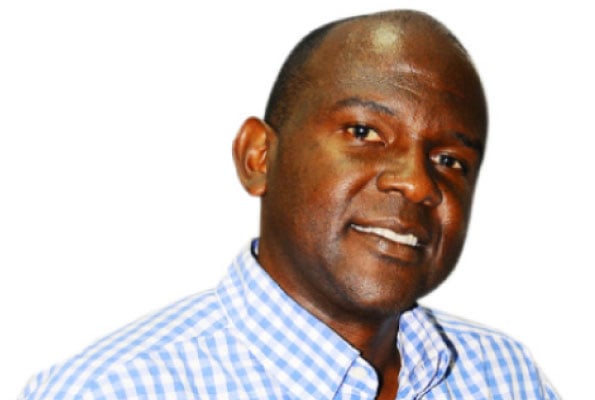Expert urges govts to help youth earn from social media

A woman uses Twitter (X) on a mobile phone. PHOTO | DAVID LUBOWA.
What you need to know:
- Mr John Omo, the secretary general of the African Telecommunications Union (ATU), said many governments are only focused on gagging the youngsters on microblogging sites and not helping them monetise content.
African governments are sitting on a lot of information that would help youth use social media to make money, an expert has said.
Mr John Omo, the secretary general of the African Telecommunications Union (ATU), said many governments are only focused on gagging the youngsters on microblogging sites and not helping them monetise content.
“Governments need policies that enable young people generate social media content that helps them generate income. Governments should build an enabling pipeline (infrastructure and environment) while the young people manage the water (monetised content) that flows in it,” Mr Omo said.
He added: “Youth can make animations, apps, etc. Who, for example, has data on traffic management in Kampala, who knows details about load shedding, water supply, business opportunities, climate change, etc? It is the government? Sharing such information can enable those on social media to earn a living,” he said.
With unemployment rising to the high heavens, social media has the potential to boost the incomes of the younger generation, who spend a sizable amount of their time online every day. Uganda has one of the world’s youngest populations and the majority are unemployed.
According to the Hamburg, a Germany-based Statista Research Department, the number of social media users is projected to increase to about 4.41 billion in 2025.
Mr Omo was speaking at the ministerial forum on developing Africa’s digital economy, organised by ATU and Huawei Technologies ahead of the week-long annual AfricaCom Technology Conference that kicked off in Cape Town, South Africa, on Monday.
Mr Omo said many people consume content on social media rather than generate, yet many of those who generate it do not even earn from it.
Dr Chris Baryomunsi, the minister of ICT and National Guidance, who was part of the panel that discussed Africa’s technology future, said his ministry was working on plans to enable easier access to information and with focus on income generation.
“Our governments inherited colonial systems and the laws sometimes are not enabling information sharing. A lot of information is in ministries but the laws allow only certain technocrats to release such information, that is why it is not always smooth, but the Access to Information Act is curing that,” he said.
The right to access information is enshrined in Article 41 of the Constitution (1995), which states: “Every citizen has a right of access to information in the possession of the State or any other organ of the State except where the release of the information is likely to interfere with the security of the State or the right to the privacy of any other person”.
Uganda has one of the most expensive Internet in the region and restrictions on social media, particularly Facebook, which has been shut since January 2021. This dents hopes of the youth to prosper through social media.
In 2020 the price for 1GB in Tanzania averaged 73 US cents, followed by Kenya ($1.05), Rwanda ($1.48), Uganda ($1.62), DR Congo ($1.94), and Burundi ($2.12).
In 2021 the average price slightly increased to 75 US cents in Tanzania. Rwanda ($1.25), Uganda ($1.56), Burundi ($2.10), Kenya ($2.25), and DR Congo ($2.88).
Dr Baryomunsi said they were working on reducing the cost.
It is estimated that 2.8 million Ugandans are on social media, with about 60 percent of the population with mobile phone connectivity.
Some Ugandans have read mischief into the Computer Misuse Act assented to by President Museveni on September 8. They say the amended piece of legislation seeks to gag users of the Internet.

Uganda's minister for ICT and National Guidance, Chris Baryomunsi (L) and other Officials after siginging a joint communique at the Ministerial Forum for developing Africa's digital economy in Cape Town on November 7, 2022
The law introduces punitive measures against Internet users who send “malicious and unsolicited information”, as well as share information about children without the consent of their parents or guardians. Section 23(A) of the law creates the offence of hate speech, which includes writing, sending or sharing of any information through a computer, which is likely to ridicule, degrade or demean another person, group of persons, tribe, ethnicity, religion, or gender. If convicted, one faces seven years imprisonment or a fine of Shs10m.
The conversation comes amid a rising number of ‘social media influencers’ across the globe.
The jargon has sprouted from individuals who use their usually large following on social media to promote and market commodities, brands, issues of particular interest to their followers, and manage perceptions at a fee.
They do so by posting regularly on such assignments, sharing pictures, video clips, information, and particular views to followers keen to consume content on their preferred social media platforms.
Some of the sites used by influencers include Twitter, Facebook, Tik Tok, Snapchat, Instagram, YouTube, and WhatsApp.
Common influencers include footballers, musicians, athletes, journalists, and bloggers.
About AfricaCom conference
AfricaCom brings together Africa’s largest community of tech champions and the largest tech event on the continent. It assembles visionary speakers and premium conference tracks, showcasing the latest connectivity and enterprise tech trends.
achekwech @ug.nationmedia.com




